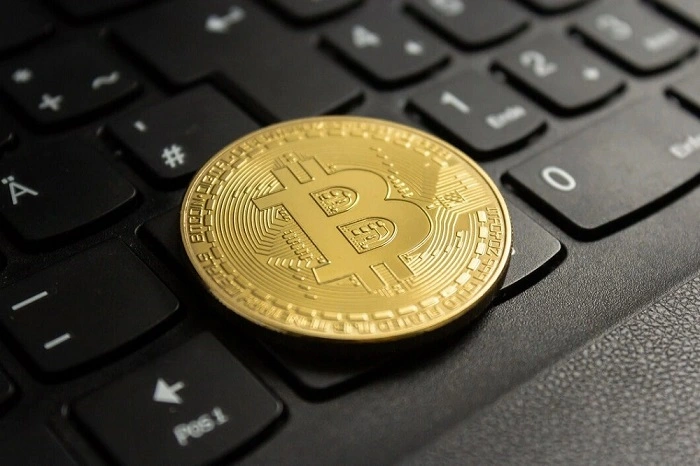Asset tokenization – Market overview

An asset tokenization platform allows businesses, financial institutions, and startups to convert valuable assets into digital tokens. These tokens represent ownership stakes in tangible assets like real estate and art. They can also represent intangible assets such as company equity and intellectual property.
The tokenization process involves assigning a digital token to a traditional asset. This token is embedded in a public blockchain network, ensuring the record of ownership is immutable and public. When someone buys a token, their assets are secure if they keep the access key safe.
The market for tokenized assets is projected to reach $10 trillion in an optimistic scenario and $3.5 trillion in a conservative outlook. Current tokenized assets are valued at $77 billion, indicating substantial growth potential. By 2030, asset tokenization could unlock a $16 trillion global market for previously illiquid assets, offering significant annual savings in worldwide clearing and settlement costs.
How can the asset tokenization platforms help businesses solve their existing problems?
With the growing potential of the asset tokenization market, it’s crucial to understand how these platforms can address the current challenges businesses face. Asset tokenization platforms offer innovative solutions that bridge the gap between traditional asset management and the digital world.
Making asset easier to trade
Many traditional assets such as real estate or company shares are hard to sell quickly. Tokenization platforms turn these assets into digital tokens, which can represent smaller portions of the asset. This makes it easier for businesses to sell part of an asset instead of waiting for a buyer who can afford the whole thing, helping to increase liquidity and attract more investors.
Reducing transaction and management costs
In traditonal systems, buying or selling assets often involves many steps and intermediaries. This not only slows things down but also increases costs. With tokenization, smart contracts are used to automate processes such as ownership transfers or compliance checks. This helps businesses reduce paperwork, save time, and cut down on unnecessary fees.
Increasing transparency and building trust
Traditional asset transactions can lack transprency, making it hard to track what’s really going on. Tokenization platforms use blockchain technology to record every transaction clearly and permanently. This gives all parties a shared view of the process and helps prevent fraud or manipulation.
Making it easier to raise capital
Small and medium-sized businesses often find it hard to secure funding. Tokenization allows them to offer digital tokens backed by real assets to a wider range of investors around the world. This makes it easier to raise money, expand operations, and grow the business without relying only on banks or local investors.
Improving how assets are managed
Keeping track of assets manually takes a lot of time and effort. Tokneization platforms give businesses tools to manage assets digitally and in real time. This makes it easier to monitor performance, make faster decisions, and improve overall efficiency.

Top 15+ asset tokenization platforms for businesses in 2026
Now that we’ve explored how asset tokenization platforms can address critical business challenges, let’s delve into the top 15+ platforms leading the way in 2026. This comparison table ranks these platforms based on ratings, focusing on key strengths, weaknesses, and target users to help businesses make informed decisions.
| Platforms | Rating (Source) | Focus | Strengths | Weaknesses | Target users |
|---|---|---|---|---|---|
| Brickken | 4.8 | Alternative Assets | User-friendly interface, good for non-fungible assets (NFTs) | Less focus on security tokens | Businesses issuing NFTs and other alternative assets |
| Fireblocks | 4.7 | Security Tokens, Custody | Secure storage solutions, comprehensive compliance, support multiple blockchains | Can be complex for beginners | Businesses requiring high-security tokenization |
| Securitize | 4.6 | Security Tokens, Full-Service Platform | A comprehensive suite of tokenization tools caters to complex offerings | Can be expensive for smaller businesses | Businesses of all sizes, especially those with complex tokenization needs |
| RealT | 4.6 | Real Estate Tokenization | Focuses on fractional ownership of real estate, user-friendly platform | Limited asset scope beyond real estate | Investors seeking fractional ownership in real estate |
| Tokensoft | 4.5 | Security Tokens | User-friendly, strong compliance, secondary market support | Limited asset type flexibility | Businesses issuing security tokens |
| Harbor | 4.4 | Security Token Issuance and Trading | Established a platform with a focus on US regulations, secondary market access | It can be complex for non-technical users | Businesses seeking compliant security token offerings with US focus |
| Tokeny | 4.4 | Security Tokens, Fractional Ownership | Enables fractional ownership, good for illiquid assets | Less established compared to some competitors | Businesses looking to fractionalize assets |
| Polymath | 4.3 | Security Token Issuance Platform | Streamlined security token creation and management, focus on compliance | Limited secondary market support | Businesses seeking efficient security token issuance with regulatory focus |
| tZERO | 4.3 | Security Tokens, Secondary Markets | Established secondary market, focuses on regulated offerings | Fees can be high | Businesses seeking compliant security token offerings with secondary trading |
| Kaleido | 4.2 | Security Tokens, Enterprise Solutions | Free tier, strong security features, caters to enterprises | Less intuitive interface compared to others | Businesses of all sizes, especially enterprises |
| NYALA | 4.2 | Regulated Security Tokens | EU-licensed for regulated token issuance, full lifecycle management | Limited asset type support beyond securities | Businesses seeking compliant security token offerings in the EU |
| Bitbond | 4.1 | Security Tokens, Emerging Markets | Focuses on emerging markets, offers lending options | Limited features compared to some platforms | Businesses in emerging markets seeking tokenization solutions |
| ADDX | 4.0 | Security Tokens, Asian Market Focus | Focuses on Asian markets, strong regulatory expertise | Limited global reach outside of Asia | Businesses in Asia issuing security tokens |
| Spydra | No readily available ratings | Diverse Asset Tokenization | Wide range of asset support, from real estate to intellectual property | Less established brand compared to some competitors | Businesses looking to tokenize various asset types |
These platforms represent the cutting edge of asset tokenization, each offering unique features tailored to different business needs. Whether you’re a small business looking to explore NFTs or a large enterprise seeking comprehensive security token solutions, there’s something here for you.
Asset tokenization full guideline for businesses
For businesses looking to leverage asset tokenization platforms, it’s essential to have a comprehensive understanding of the deployment process. Here are the vital steps and resources for further guidance to help you deploy an asset tokenization platform effectively.

Necessary steps to tokenize assets
Tokenizing assets involves several critical steps that ensure the process is smooth and compliant. Understanding these steps is vital for successful implementation. For a detailed guide on how to tokenize your assets, visit here.
How to choose a suitable asset tokenization platform provider
Selecting the right platform provider is crucial for the success of your tokenization efforts. Factors like security, compliance, usability, and support are important to consider. To learn more about choosing the best provider, check out Choosing your partner in asset tokenization: Companies or platforms?
Necessary security measures to protect assets and data
Ensuring the security of your tokenized assets and data is paramount. Implementing robust security measures can protect your investments from threats. For an in-depth look at essential security practices, read here.
Enterprises can successfully implement asset tokenization platforms by adhering to these guidelines and making use of the available resources. And you may now completely profit from tokenizing their assets and improve security at the same time.
Conclusion
Asset tokenization is changing the financial landscape, with top platforms leading the way in 2026. By converting tangible assets into digital tokens, businesses can increase their asset exposure and value, streamline transactions, and access global markets.
Choosing the right tokenization platform is key. These real world asset tokenization platforms make the process simple and offer essential post-launch support, ensuring smooth delivery to investors.
As blockchain technology evolves, asset tokenization remains a powerful force in financial innovation. Are you ready to embrace this transformative change? Dive into asset tokenization and unlock a world of opportunities with Synodus today!
How useful was this post?
Click on a star to rate it!
Average rating / 5. Vote count:
No votes so far! Be the first to rate this post.




